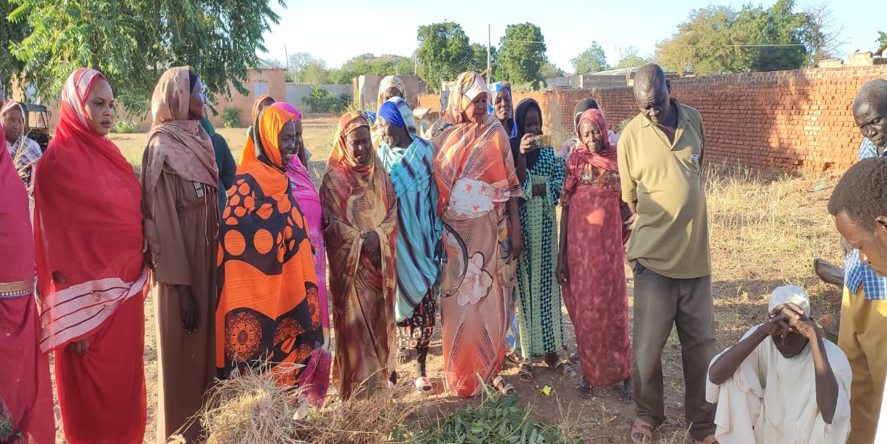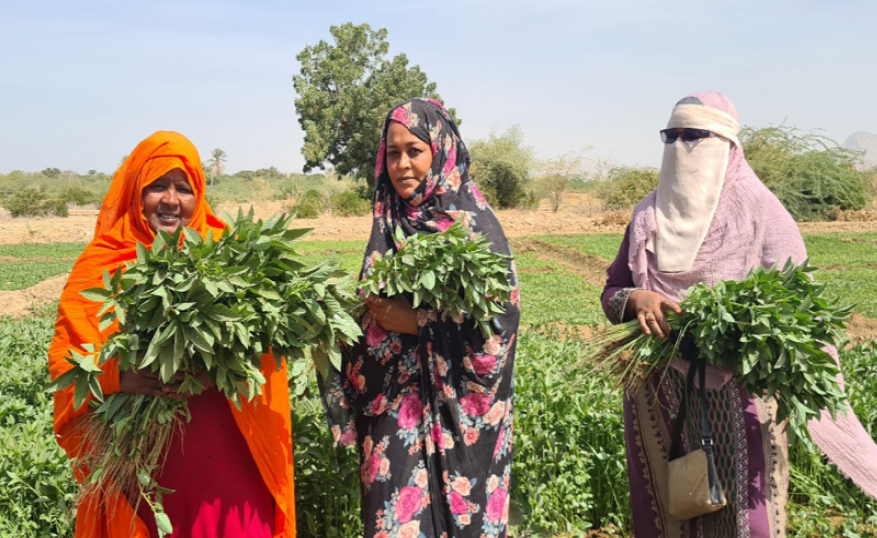Umm Zeina, a 40-year-old farmer living in El Nahal, in Sudan’s Gadarif State, was not happy with her yield, blaming the poor seeds and traditional techniques she was using. This was until she participated in the extensive seeds production training program organized by the International Crops Research Institute for the Semi-Arid Tropics (ICRISAT).
“We learned a lot on how to produce seeds and how to control the parasite Striga mixed with crops. The training draws our attention to the fact that the availability of quality seed is the foundation for food production and productivity. As traditional farmers, we had very poor information about the availability, characteristics, and prices of seed of improved varieties,” Umm Zeina stressed.
ICRISAT’s extensive training attracted more than 350 (68 female) seed producer farmers from El Fashaga and El Nahal localities aimed at helping seed producers provide seeds of appropriate varieties for use by different categories of farmers. Farmers were also trained in better selection, treatment, and storage of seed from their own farms. The training also focused on the production of disease-free seeds to support agricultural productivity and success. The training helped to enhance farmers’ demand for improved seeds and eventually aimed to deliver improved seeds to more than 6000 farmers in El Fashaga, El Nahal and other neighboring localities.
This training was held as part of CIMMYT’s Sustainable Agrifood Systems Approach for Sudan (SASAS) program, which empowers farmers and herders to reduce the need for humanitarian assistance even in conflict-affected Sudan. In the context of the atrocious food crisis in Sudan, SASAS and partners work to ensure that farmers produce the quality seeds they need to enhance food production amid escalating conflict.
In El Fashaga and El Nahal localities, the seeds production training focused on sorghum, as this crop is widely adapted and drought tolerant as well as it is a staple crop to strengthen food security and contributes to agricultural diversity and economic growth in the regions where it is cultivated.
“During the training, we learnt a lot on how to choose the best seeds to produce improved seeds and how to choose the land, isolation area, and cleanliness to harvest. I was extremely interested to learn more about how to keep the seed to its purest form for replanting purposes and human or animal consumption,” said Tarig Hassan, a farmer living in El Nahal locality.
The seeds production training also aimed at maintaining seeds quality control through training and regulatory systems, and how to multiply and distribute seeds in a timely manner and at a price affordable for farmers. Farmers also learnt to use a revolving seed mechanism to make available seeds for many new seed producer farmers for the next season through farmer-to-farmer seeds distribution.
“The seed production training is not only on how to produce quality seeds and protect loss of seeds, but also about the use of diversified seeds of sorghum, millet and ground nut that serve for both food and nutrition security”, said Gizaw Desta, Senior Scientist in ICRISAT.
SASAS’s objective is to improve food security and access to income-generating opportunities through the adoption of sustainable agriculture practices and the promotion of agri-processing and post-harvest management. It focuses on supporting smallholder crop and livestock farmers to adapt their farming activities to climate change and abiotic pressures by diversifying their crops to further cushion themselves from climatic vagaries, reduce post-harvest loss, and improve market participation, and functionality. Women and youth are supported through training and agricultural and veterinary inputs to increase income generation activities and access to economic resources.
“At SASAS, we strive to train farmers in basic farm seed production. This helps preserve and expand the diversity of the seed on which our food systems in Sudan rely. Considering the dire food security situation in the country, we fully encourage farmers to be engaged in seeds production to provide different and improved seed varieties,” said Abdelrahman Kheir, SASAS Chief of Party in Sudan.
SASAS works with ICRISAT to uplift smallholder farmers and ensure food security in semi-arid tropics. SASAS partners are committed to elevating crop productivity, resilience, and sustainability vital to dryland communities’ prosperity. This steadfast commitment profoundly affects millions in the world’s most challenging agricultural regions.


 Environmental health and biodiversity
Environmental health and biodiversity 
